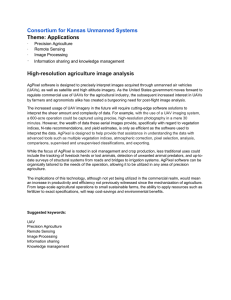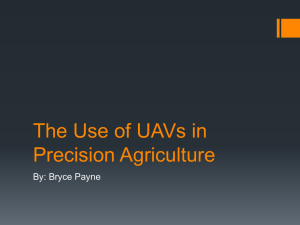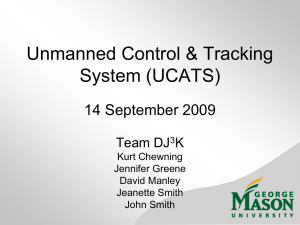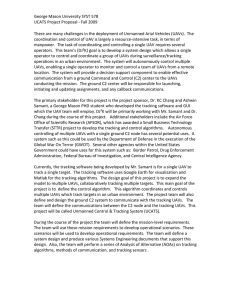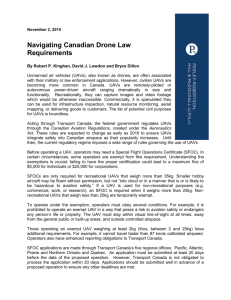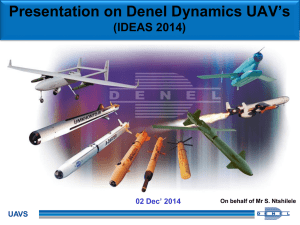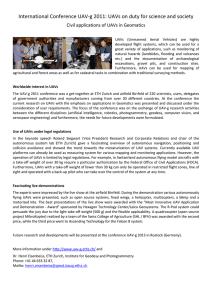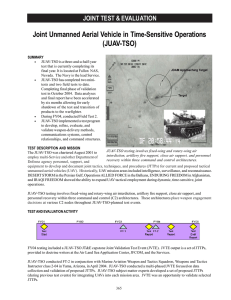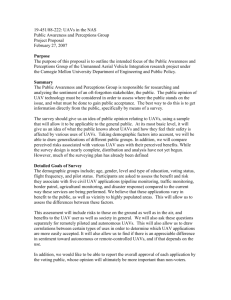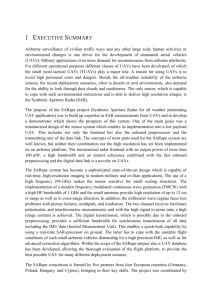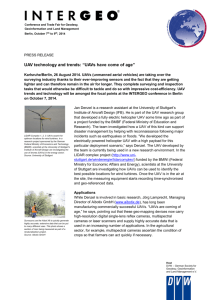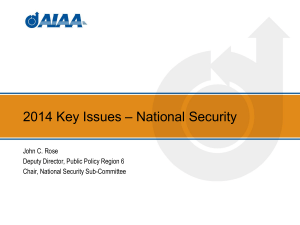Developing an Aerial Workflow for UAVs
advertisement
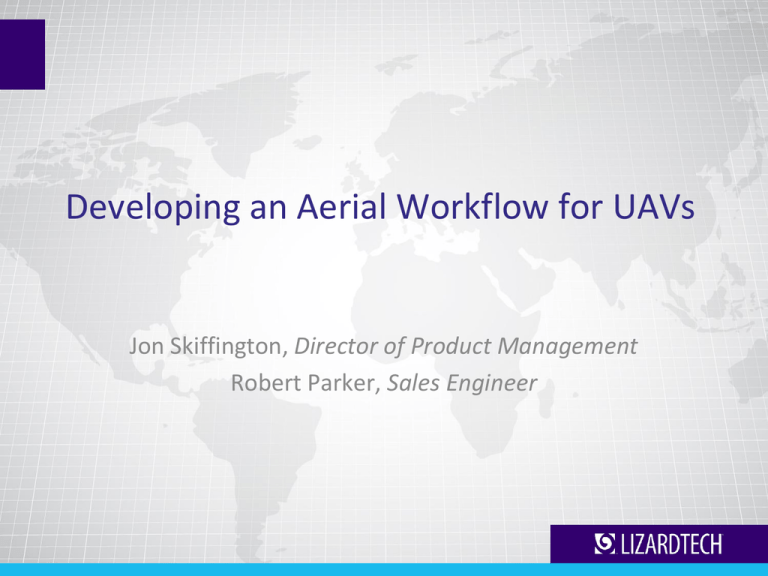
Developing an Aerial Workflow for UAVs Jon Skiffington, Director of Product Management Robert Parker, Sales Engineer Overview • Why UAVs? • Orthoimagery production workflow • UAV specific concerns • Post-production workflow • Storage and distribution Why UAVs? • • • • • • Autonomy (potentially) 3Ds: Dull, dirty, dangerous Price Endurance Launch and land from virtually anywhere Potential to drastically reduce image acquisition costs Why not UAVs? • Airspace regulation • EUROCONTROL has adopted general regulations • FAA has yet to have a structured plan for US National Airspace System • Privacy concerns • Varies by region and country Orthoimagery workflow • • • • • • UAV and camera capabilities Mission planning Launch, acquisition, and recovery Ground control, orthorectification, and georeferencing QC Release image UAVs and support software • UAV providers • Trimble • senseFly • Silent Falcon • Eurodrone • Many, many (many) more • UAV support software • Pix4D • Trimble TBC • Photoscan • Open source tools Mission planning • What are you trying to acquire? • What route will you fly? • What airspace concerns are in the area? • How many passes will be required? • Flying remotely or autonomously? • How will the UAV be recovered? Launch/acquisition/recover • Launch • How much space is required for launch? • Acquisition • Typically a grid or back and forth pattern • How long will the vehicle be airborne? • Recovery Image production • Ground control points • Orthorectification • Corrects for surface of the earth, tilt of the sensor, etc. • Correct/warp the image to match know ground control points • Digital Elevation Model (DEM) • Georeferencing • QC Now what? • You’ve got your imagery… • Storage • GeoTIFF, MrSID, JPEG 2000, etc. • Analysis • Esri, Erdas, QGIS, etc. • Distribution • Express Server, ArcGIS Server, Image Server, etc.
